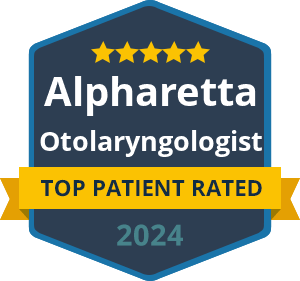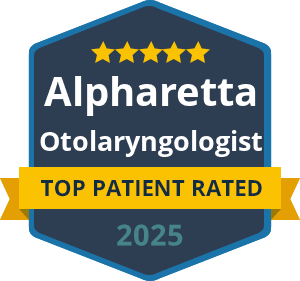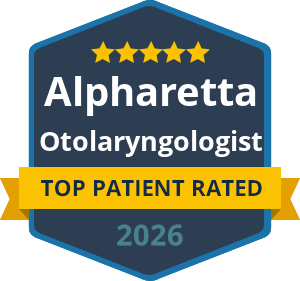
Sleep conditions don’t always occur during the nighttime hours. When it comes to narcolepsy, patients may experience excessive daytime sleepiness as well as suddenly fall asleep without warning during the day.
Narcolepsy is estimated to affect approximately 1 in 2,000 people worldwide. It typically begins in adolescence or young adulthood, although it can occur at any age. Narcolepsy is a chronic condition that lasts throughout a person’s life. Compared to other sleep conditions, narcolepsy can significantly impact a person’s quality of life and daily functioning. The sudden onset of sleepiness and other symptoms can interfere with work, education, social activities, and relationships.
While there is currently no known cure for narcolepsy, its disruptive (and even dangerous) symptoms can be managed with appropriate treatments. Dr. Julie Zweig is proud to offer an integrative medicine treatment approach to narcoleptic patients so that they can enjoy a more normal life.
What is Narcolepsy?
Narcolepsy is a chronic neurological disorder that affects the brain’s ability to regulate sleep-wake cycles. Individuals with narcolepsy experience excessive daytime sleepiness, which can lead to sudden and uncontrollable episodes of falling asleep during the day. These sleep attacks can occur at inappropriate times and places, such as during work, while driving, or during social activities.
Other Symptoms Associated with Narcolepsy
In addition to excessive daytime sleepiness, people with narcolepsy may also experience other symptoms, including:
- Cataplexy: Sudden loss of muscle tone, often triggered by strong emotions such as laughter, excitement, or anger. Cataplexy can cause temporary muscle weakness or complete paralysis, leading to slurred speech, drooping facial muscles, or even collapse.
- Sleep paralysis: A temporary inability to move or speak while falling asleep or waking up. It can be a frightening experience but is usually brief and harmless.
- Hypnagogic hallucinations: Vivid and often frightening dream-like experiences that occur while falling asleep or waking up.
- Fragmented nighttime sleep: People with narcolepsy often have disrupted and poor-quality nighttime sleep, with frequent awakenings or difficulty staying asleep.
Narcolepsy is thought to be caused by a deficiency of hypocretin, a neurotransmitter that helps regulate wakefulness and sleep. The exact cause of this deficiency is not fully understood, but it is believed to involve an autoimmune response that damages the cells producing hypocretin in the brain.
Integrative Medicine for Narcolepsy
While there is no cure for narcolepsy, it can be managed with various treatments, including medications to improve alertness during the day and control symptoms such as cataplexy. Lifestyle adjustments, such as maintaining a regular sleep schedule, taking short scheduled naps, and practicing good sleep hygiene, can also help manage the symptoms of narcolepsy. At the office of Dr. Julie Zweig, we are proud to use an integrative treatment approach to narcolepsy and other sleep conditions.
Integrative medicine, also known as complementary and alternative medicine (CAM), involves combining conventional medical treatments with evidence-based complementary therapies to promote overall well-being and support the body’s natural healing mechanisms. While there is limited research specifically focused on integrative medicine for narcolepsy, some complementary therapies may be beneficial in managing symptoms and improving quality of life.
Here are a few examples of integrative approaches that may be considered for narcolepsy:
Mind-Body Techniques: Stress management and relaxation techniques can help reduce the impact of stress on narcolepsy symptoms. Practices such as mindfulness meditation, deep breathing exercises, yoga, tai chi, and biofeedback may be helpful in managing stress levels and promoting relaxation.
Herbal Supplements: Certain herbal supplements have been traditionally used to support sleep and improve overall well-being. For example, valerian root, chamomile, passionflower, and lemon balm are herbs that have been associated with relaxation and may aid in improving sleep quality. However, it’s important to consult with Dr. Zweig before taking any herbal supplements, as they can interact with medications or have side effects.
Lifestyle Modifications: Healthy lifestyle habits can play a significant role in managing narcolepsy symptoms. Regular exercise, maintaining a consistent sleep schedule, practicing good sleep hygiene, and avoiding triggers such as alcohol and caffeine can help promote better sleep and overall well-being.
Ready to learn more about how we can treat or manage your narcolepsy in Alpharetta? Contact our skilled Integrative Sleep & ENT Specialist Dr. Julie Zweig to schedule your consult.
Posted on behalf of
2650 Holcomb Bridge Road, Suite 510
Alpharetta, GA 30022
Phone: (404) 255-4080
FAX: (404) 990-3542
Email: info@JulieZweigMD.com





